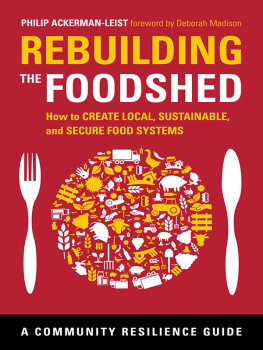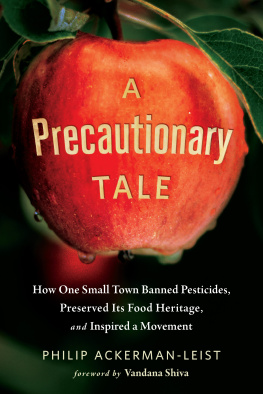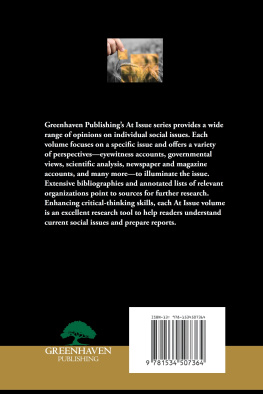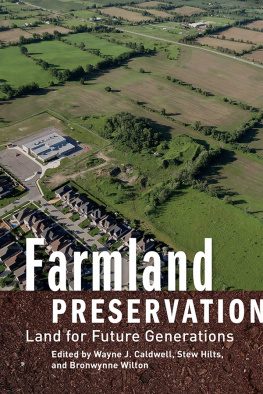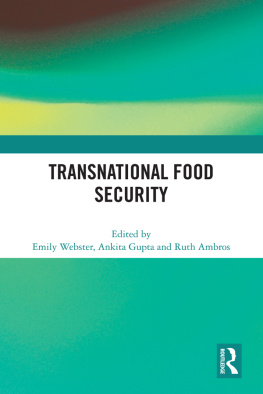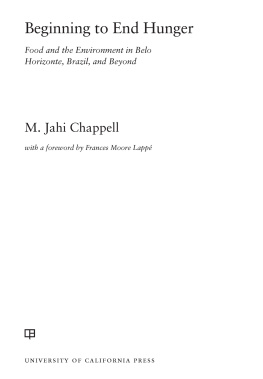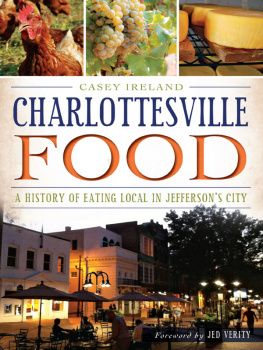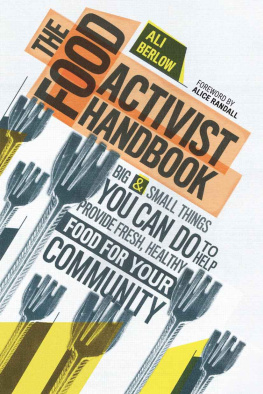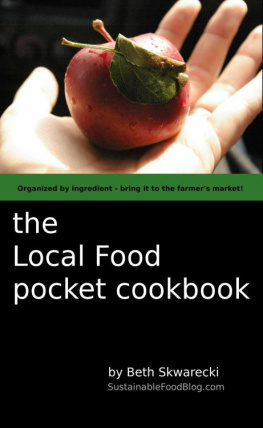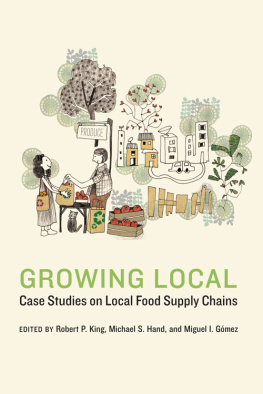ABOUT THE AUTHOR
Philip Ackerman-Leist, author of Rebuilding the Foodshed and Up Tunket Road, is a professor at Green Mountain College, where he established the colleges farm and sustainable agriculture curriculum and is director of the Green Mountain College Farm & Food Project. He also founded and directs the colleges Masters in Sustainable Food Systems (MSFS), the nations first online graduate program in food systems, featuring applied comparative research of students home bioregions. He and his wife, Erin, farmed in the South Tirol region of the Alps and North Carolina before beginning their sixteen-year homesteading and farming venture in Pawlet, Vermont. With more than two decades of experience working on farms, in the classroom, and with regional food systems collaborators, his work is focused on examining and reshaping local and regional food systems from the ground up.
ABOUT POST CARBON INSTITUTE
Post Carbon Institute provides individuals, communities, businesses, and governments with the resources needed to understand and respond to the interrelated economic, energy, environmental, and equity crises that define the twenty-first century.
ABOUT THE FOREWORD AUTHOR
Chef, author, and local food advocate Deborah Madison, founding chef of Greens Restaurant in San Francisco, has authored nine cookbooks, including The Greens Cookbook, Vegetarian Cooking for Everyone, and Local Flavors. She has received the M.F.K. Fisher Award, the IACP Julia Child Cookbook of the Year Award, and three James Beard Foundation Awards. She writes on food and farming for such magazines as Gourmet, Saveur, and Orion, and has long been active in Slow Food and other groups involved in local food issues.
This book would not have happened were it not for the steadfast endurance of my wife, Erin, who heard Its almost done more times than I care to admit. I always did think it was almost done. And then I (or my steadfast editors) would realize once again what a vast topic local really is. It was also possible because our children, Asa, Ethan, and Addy, did their best to share their home with someone too often deep in thought. My deepest love and thanks to all of you.
Meanwhile, the farm and homestead depended on the deft hands of apprentices Ollie, Jose, Tomer, and Simon, who kept things going outside in all kinds of weather while I huddled up insidesometimes envying them, sometimes wondering why they stuck by us, all with nearly constant smiles. Others, like (but none quite like!) Maggie Ackerman, provided me with untold hours of quiet writing time by taking the kids for a hike or a swimor hours of play at her cabin in the woods.
One could not ask for a more careful or insightful editor than Daniel Lerch, publications director of the Post Carbon Institute, to whom I am enormously grateful. He even found a kind way to let me know when my wordplay just went over the top. In sum, Ill miss his =). Sometimes, it meant I nailed it; other times, it was the quick and easy letdown.
Thanks also to Asher Miller, executive director of the Post Carbon Institute, whose astute eye and crisp thinking always came to the fore in his manuscript reviews. The same goes for Joni Praded of Chelsea Green Publishing, who also seems to have an uncanny instinct for chiming in with precisely what is needed at a given point, even in a crunch. Copy editor Nancy Ringer provided more careful corrections than I hope my students or colleagues will ever realize, so I thank her wholeheartedly for sparing my reputation. Dan Sullivan was also kind enough to use his editorial skills in reviewing part of the manuscript early on.
Geography clearly has played a central role in this book, but it would be much more abstract were it not for the brilliant mapping efforts of friend and colleague Dr. John Van Hoesen, the MacGyver of maps (and just about everything else technical in nature!).
I would be remiss not to express gratitude to my colleagues and students at Green Mountain College for their patience and support in this project, and my journey from sustainable agriculture to food systems began in the college dining hall with Chef Davethanks, Dave! Shep Ogden has long been a compatriot in thinking about the viability of new sustainable food system models, and much of what is written here reflects our longwinded dialogues about how to design a graduate program that can help move these ideas forward. Credit should also go to the first cohort in our new Masters in Sustainable Food Systems, students who have risen to the challenge while also challenging me to think harder about the possibilities for change in our food systems.
And, although they are too far away (but it was me who moved north), it is my parents who are behind the heart in this book. They have never been willing to believe that the status quo is acceptable, simply because someone out there always deserves far more than they have been served. It was from them that I learned the taste of justice.
A final thanks to all who shared their ideas and stories with me. Hearing those perspectives has been a true privilege. I only hope that I heard and cast them in ways that are not only accurate but also affirming for the important work you and others are doing.
INTRODUCTION TO THE COMMUNITY RESILIENCE GUIDES
In the twenty-first century, we face a set of interconnected economic, energy, and environmental crises that require all the courage, creativity, and cooperation we can muster. These crises are forcing us to fundamentally rethink some of our most basic assumptions, like where our food and energy come from, and where we invest our savings.
While national and international leadership are key to navigating the bumpy road ahead, that leadership thus far is sadly wanting. And, in any case, many of the best responses to these challenges are inherently local.
Thankfully, a small but growing movement of engaged citizens, community groups, businesses, and local elected officials is leading the way. These early actors have worked to reduce consumption, produce local food and energy, invest in local economies, and preserve local ecosystems. While diverse, the essence of these efforts is the same: a recognition that the world is changing and the old way of doing things no longer works.
Post Carbon Institute has partnered with Chelsea Green Publishing to publish this series of Community Resilience Guides to detail some of the most inspiring and replicable of these efforts. Why community resilience? Community, because we believe that the most effective ways to work for the future we want are grounded in local relationshipswith our families and neighbors, with the ecological resources that sustain us, and with the public institutions through which we govern ourselves. Resilience, because the complex economic, energy, and environmental challenges we face require not solutions that make problems go away but responses that recognize our vulnerabilities, build our capacities, and adapt to unpredictable changes.
These are frightening, challenging times. But they are also full of opportunity. We hope these guides inspire you and help you build resilience in your own community.
ASHER MILLER
EXECUTIVE DIRECTOR
POST CARBON INSTITUTE
CONTENTS
Copyright 2013 Post Carbon Institute.
All rights reserved.
No part of this book may be transmitted or reproduced in any form by any means without permission in writing from the publisher.
Page 87, gorilla image: Copyright 2012 JoeyBear. Used under license from Shutterstock.com. Figures 9-1, 9-2, 9-3, and color-insert maps 3 thru 10: Map design courtesy of John Van Hoesen, Community Mapping Lab at Green Mountain College (2012).
Editor: Joni Praded
Developmental Editor: Daniel Lerch
Project Manager: Patricia Stone
Next page
